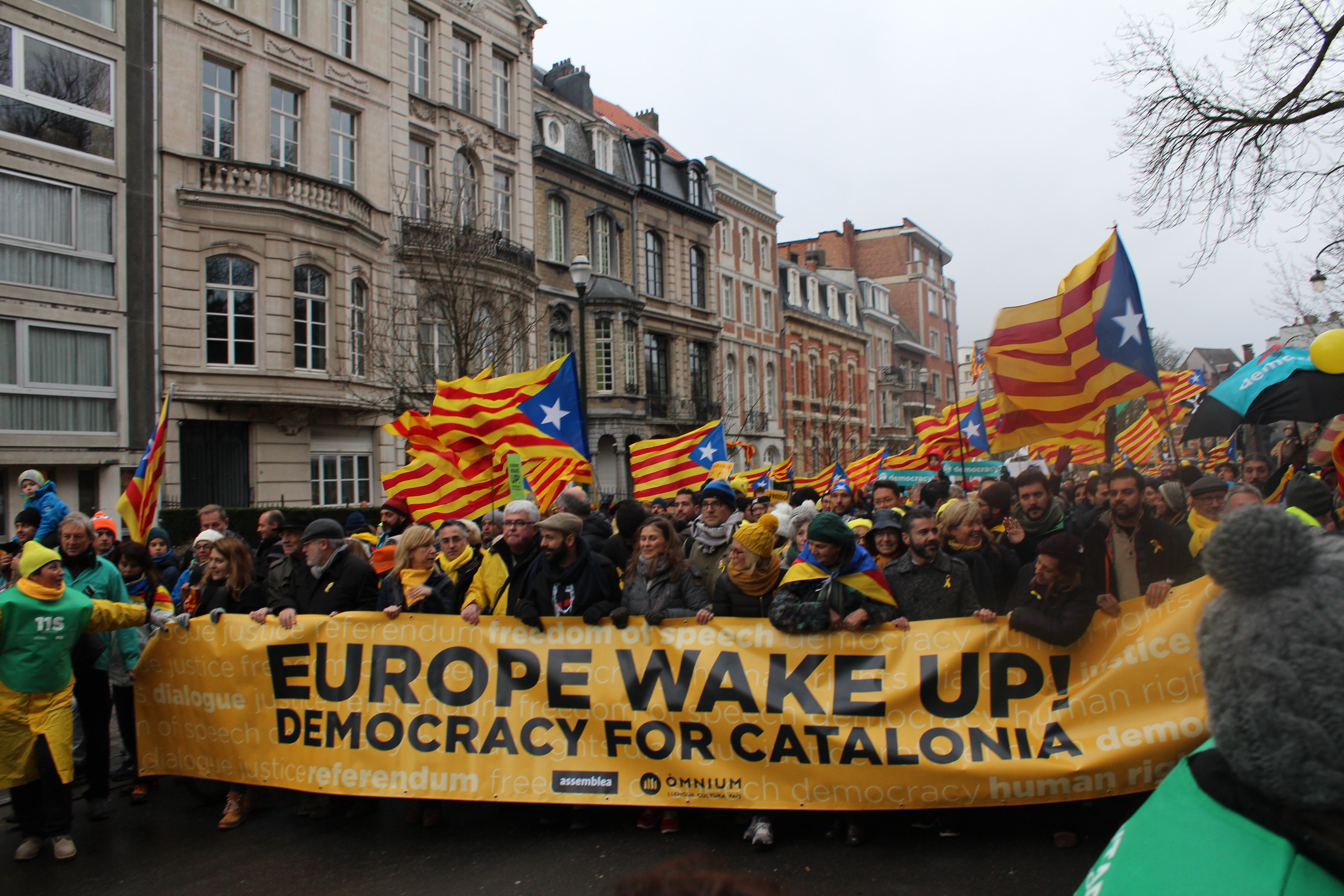The Catalan referendum on 1st October, and everything that has happened since then, have left their mark not only on Catalonia and on the Spanish state, but also beyond.
One of the indicators of this impact is that Catalonia has become a focus of interest for internet users all over the world, and in many cases Google searches on 'Catalonia', other related terms and, of course, a certain key question, have entered the Top Ten lists for 2017.
One of the European events of the year
It is not everyday that an established European country is plunged into crisis in a conflict with one of its own regions. It is for that reason that Catalonia has aroused special interest in 2017, especially among the other major countries of Europe.
In Germany, “Catalonia” was the fourth most popular Google search item of the year:
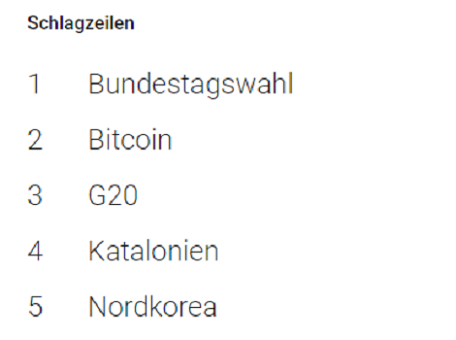
The independence process also entered Top Ten lists for Google searches in France (7th place), Italy and the United Kingdom (8th position in both countries).
“Why does Catalonia want independence”?
The famous question that few Catalans can avoid when they travel abroad has been one of the star FAQs on the worldwide web.
In Italy, it's the question of the year:
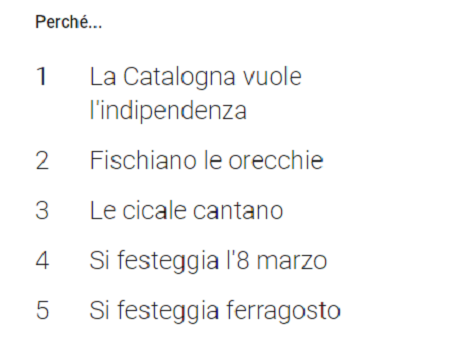
The question of Catalan sovereignty has also had Germans scratching their heads, and hunting on their computers, where it rated as the third most frequently asked question in 2017.
Catalonia crosses the Atlantic
Meanwhile, Latin Americans also wanted to know more about Catalonia. In Mexico, Catalonia slipped into the Top Ten search terms in ninth place, while in Argentina it got as far as seventh most searched item of the year. As with Germany, the number one position was held by searches on the country's national elections.
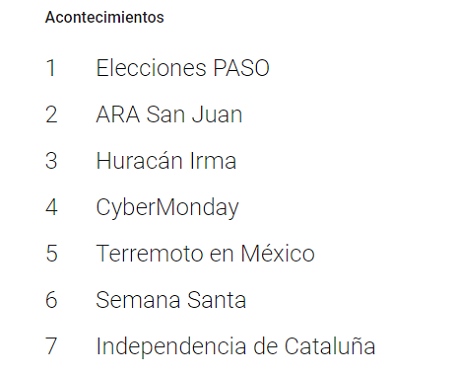
The Puigdemont factor
The unexpected arrival of Carles Puigdemont in Brussels shook the foundations of Belgium, at least on Google.
Catalonia's acting president was the fifth-ranked international personality in Belgian web searches for the year, sharing stardom with names like Donald Trump and Kevin Spacey.
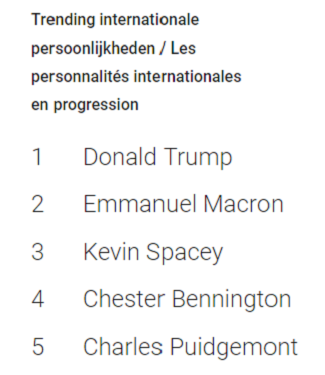
In Spain, Puigdemont was the second most-searched personality of the year behind singer Bimba Bosé, who died of cancer in January 2017.
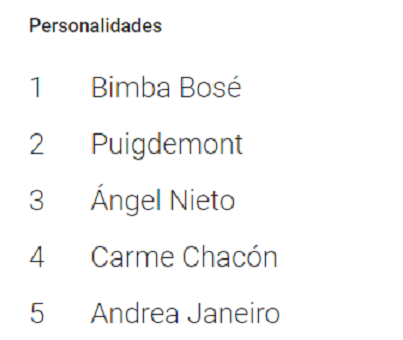
As a curiosity, Spain's top five list closes with the daughter of gossip media star Belén Esteban: Andrea Janeiro, aka "Andreíta", who celebrated her 18th birthday during the year.
"What does DUI mean? And 155? And the CUP"?
The independence process and its peculiarities were also among the most frequent queries that brought Spaniards to their computers.
“What is article 155?" was the most frequently asked question of the year registered by Google in the Spanish state last year. If you don't know: it is the article of the Spanish constitution under which the Spanish government has imposed its direct rule over Catalonia. Several other frequently-consulted terms were Spanish acronyms related to independence: DUI (in English: UDI, or Unilateral Declaration of Independence), the CUP (the far-left Catalan political party Popular Unity Candidature) or even EFTA, the European Free Trade Association, which was discussed as a possible economic grouping that Catalonia could enter after independence.
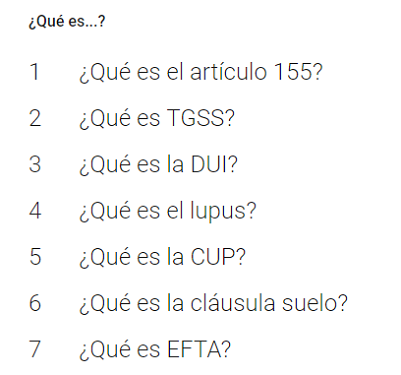
The dominance of the Catalan issue in Spain is well summed up in the overall list of top terms searched by Spanish internauts during the year: Catalonia is first, followed by last August's terrorist attack on Barcelona in second place:
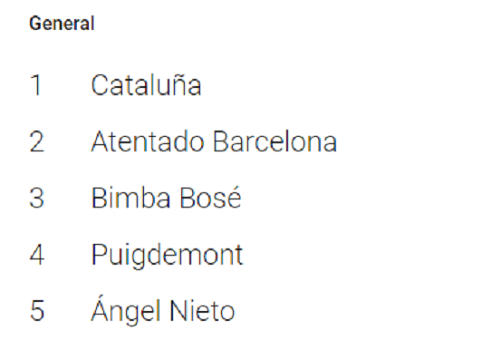
"The world is watching us" is a refrain that's been frequently repeated during the years of the independence process. In the end, it seems to have come true.

